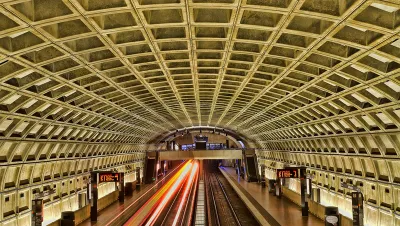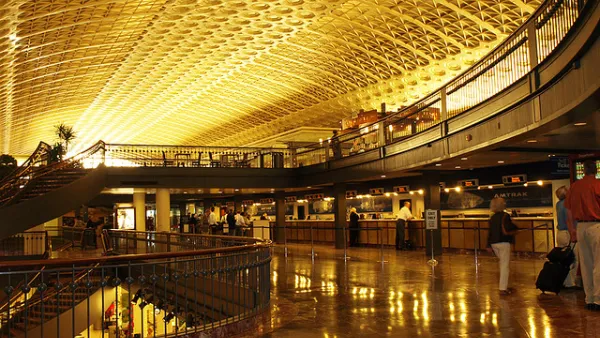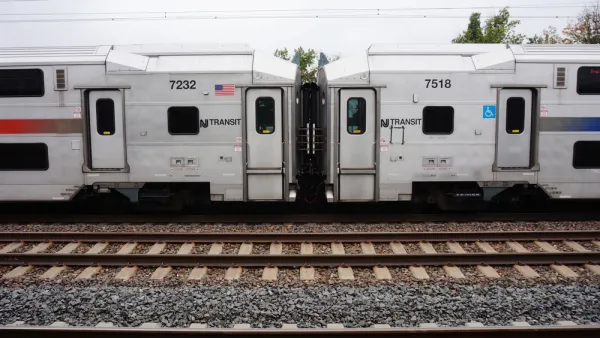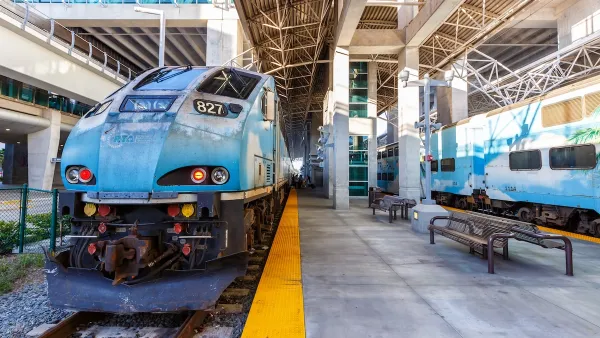The region's transit providers are gearing up to provide enhanced service, shorter headways, and reduced or free fares as more people return to public transportation.

Washington, D.C.'s regional transit agencies are working to resume and improve service as workers start returning to their pre-pandemic commutes. As reported by Luz Lazo, "[m]ost transit systems in the region are transitioning to normal operations after reducing service 16 months ago at the onset of the pandemic. Some are adjusting or restructuring routes, while others are adding amenities and cutting the cost of riding."
Ridership in the region "has started to bounce back, although it hasn’t returned to where it was pre-pandemic. Local bus systems are still 50 to 70 percent below previous levels, according to transit officials, while Maryland and Virginia commuter trains are largely empty — down by about 85 percent."
D.C. Metro "is rolling out service improvements for bus and rail users, as well as a reduction in fares this fall. Beginning in September, weekend rides on Metrorail will be a flat $2, a $1.50 transfer fee between rail and bus will be lifted and the price of a seven-day regional bus pass will drop by $3 to $12." The agency also plans to increase frequencies on their most popular train lines, expand operating hours, and restore or increase bus service on 46 routes.
Maryland's MARC trains and commuter buses will also bring back full service and allow cyclists to bring their bikes on trains in order to expand first-mile/last-mile options, while the popular downtown D.C. Circulator will be free "at least through Sept. 30."
The article details the changes planned by several other transit systems in the area as they gear up to resume full service, reducing or eliminating fares, and expanding frequency and service areas.
FULL STORY: Planning a return to the office? The D.C. area’s transit systems want to get you there.

National Parks Layoffs Will Cause Communities to Lose Billions
Thousands of essential park workers were laid off this week, just before the busy spring break season.

Retro-silient?: America’s First “Eco-burb,” The Woodlands Turns 50
A master-planned community north of Houston offers lessons on green infrastructure and resilient design, but falls short of its founder’s lofty affordability and walkability goals.

Delivering for America Plan Will Downgrade Mail Service in at Least 49.5 Percent of Zip Codes
Republican and Democrat lawmakers criticize the plan for its disproportionate negative impact on rural communities.

Test News Post 1
This is a summary

Test News Headline 46
Test for the image on the front page.

Balancing Bombs and Butterflies: How the National Guard Protects a Rare Species
The National Guard at Fort Indiantown Gap uses GIS technology and land management strategies to balance military training with conservation efforts, ensuring the survival of the rare eastern regal fritillary butterfly.
Urban Design for Planners 1: Software Tools
This six-course series explores essential urban design concepts using open source software and equips planners with the tools they need to participate fully in the urban design process.
Planning for Universal Design
Learn the tools for implementing Universal Design in planning regulations.
EMC Planning Group, Inc.
Planetizen
Planetizen
Mpact (formerly Rail~Volution)
Great Falls Development Authority, Inc.
HUDs Office of Policy Development and Research
NYU Wagner Graduate School of Public Service





























